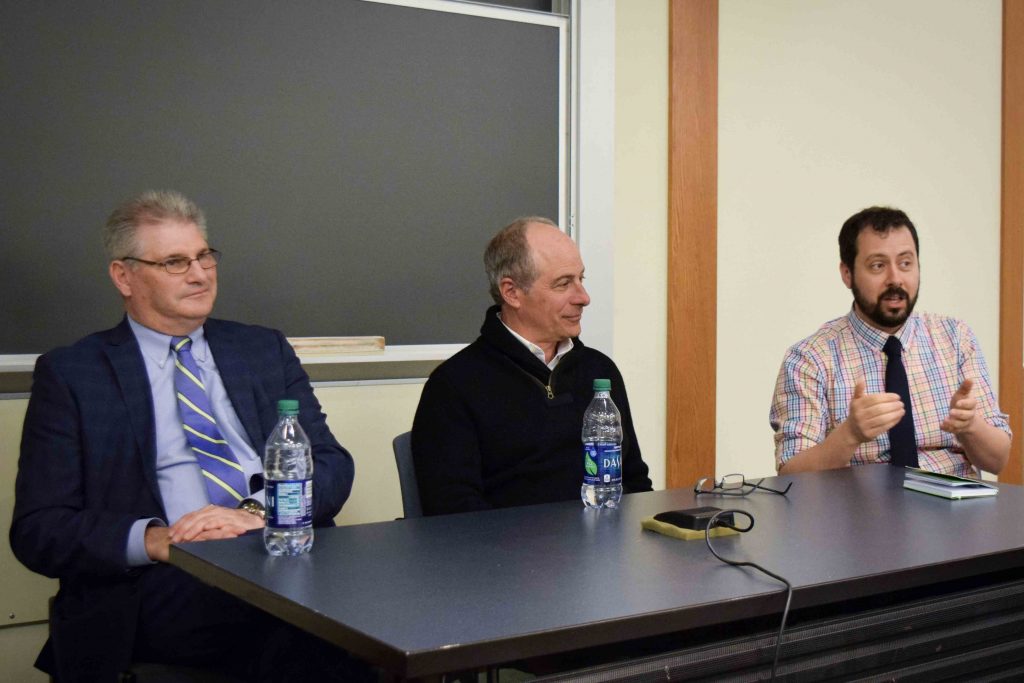Nearly two months after a mass school shooting left 17 people dead in Parkland, Florida, activists remain engaged at the state and national level in efforts to reduce gun violence. Against this backdrop, the Boston College chapter of the American Constitution Society hosted a panel entitled State and Private Efforts: A Conversation on Exploring Ways to Reduce Gun Violence at BC Law on April 10.
The panel, featuring Massachusetts State Representative David Linsky ’82, Stop Handgun Violence founder John Rosenthal, and Professor Daniel Farbman, discussed epidemic gun violence in the United States and measures being taken by legislatures and private citizens to attempt to reduce gun deaths. Most of the conversation focused on efforts being made at the state level, particularly in Massachusetts.
“It’s up to the states now,” Linsky said. “Congress has abdicated its responsibility to reduce gun violence. That’s sad, and it’s an indictment of our political system, but it’s fallen on state legislatures to do as much as we can to reduce gun violence.”
Linsky recently sponsored a bill in the Massachusetts House of Representatives that would allow concerned family members to seek Extreme Risk Protective Orders in an effort to temporarily separate potentially violent individuals from firearms. He also touted changes Massachusetts has made since 1994, including banning particular semi-automatic weapons and closing background check loopholes, as drivers behind the state having the lowest gun violence rate in the nation.
Rosenthal also highlighted changes made at the state level. “As a gun owner and business owner I started Stop Handgun Violence to show that you can dramatically reduce gun violence without undermining the Second Amendment,” he said. “We have a federal system designed to increase fear, increase gun sales, and increase gun violence because we’re not holding Congress accountable. We need state regulations that are reasonable.”
Farbman pointed out that most gun deaths in the United States are not related to mass shootings, and addressed the due process concerns associated with gun control legislation. “There are very few gun control laws or proposals that would be problematic under [District of Columbia v.] Heller,” Farbman said. “But we have to look at the history, especially during Reconstruction, of this kind of targeted, discretionary use of these laws, and it’s been problematic.”
All three panelists agreed that more gun legislation is necessary, and recognized the unique opportunity the aftermath of the Parkland shooting has provided. “There was a thinking that Sandy Hook would be the breaking point, but nationally we didn’t really change anything.” Linsky said. “Las Vegas and the Pulse nightclub shooting moved the needle a little, but Parkland seems to have struck a nerve. The closest parallel is probably Vietnam, in the sense that we’re letting the [Parkland students] lead.”
“The student movement is thriving,” Rosenthal added. “Maybe now we can join the rest of the civilized world in regulating firearms.”
Photo, from left: State Representative David Linsky ’82, Stop Handgun Violence founder John Rosenthal, Professor Daniel Farbman


